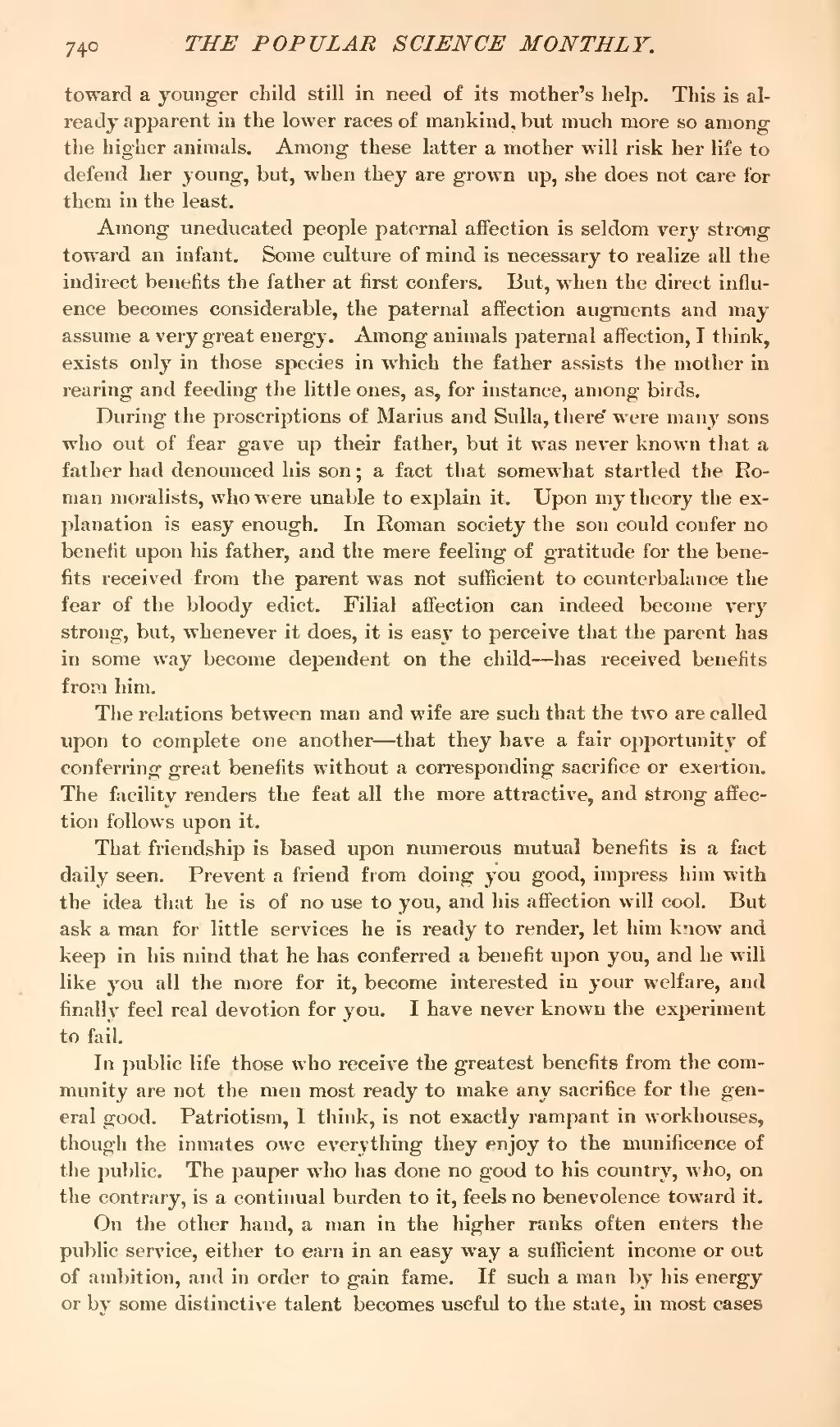toward a younger child still in need of its mother's help. This is already apparent in the lower races of mankind, but much more so among the higher animals. Among these latter a mother will risk her life to defend her young, but, when they are grown up, she does not care for them in the least.
Among uneducated people paternal affection is seldom very strong toward an infant. Some culture of mind is necessary to realize all the indirect benefits the father at first confers. But, when the direct influence becomes considerable, the paternal affection augments and may assume a very great energy. Among animals paternal affection, I think, exists only in those species in which the father assists the mother in rearing and feeding the little ones, as, for instance, among birds.
During the proscriptions of Marius and Sulla, there were many sons who out of fear gave up their father, but it was never known that a father had denounced his son; a fact that somewhat startled the Roman moralists, who were unable to explain it. Upon my theory the explanation is easy enough. In Roman society the son could confer no benefit upon his father, and the mere feeling of gratitude for the benefits received from the parent was not sufficient to counterbalance the fear of the bloody edict. Filial affection can indeed become very strong, but, whenever it does, it is easy to perceive that the parent has in some way become dependent on the child—has received benefits from him.
The relations between man and wife are such that the two are called upon to complete one another—that they have a fair opportunity of conferring great benefits without a corresponding sacrifice or exertion. The facility renders the feat all the more attractive, and strong affection follows upon it.
That friendship is based upon numerous mutual benefits is a fact daily seen. Prevent a friend from doing you good, impress him with the idea that he is of no use to you, and his affection will cool. But ask a man for little services he is ready to render, let him know and keep in his mind that he has conferred a benefit upon you, and he will like you all the more for it, become interested in your welfare, and finally feel real devotion for you. I have never known the experiment to fail.
In public life those who receive the greatest benefits from the community are not the men most ready to make any sacrifice for the general good. Patriotism, I think, is not exactly rampant in workhouses, though the inmates owe everything they enjoy to the munificence of the public. The pauper who has done no good to his country, who, on the contrary, is a continual burden to it, feels no benevolence toward it.
On the other hand, a man in the higher ranks often enters the public service, either to earn in an easy way a sufficient income or out of ambition, and in order to gain fame. If such a man by his energy or by some distinctive talent becomes useful to the state, in most cases
